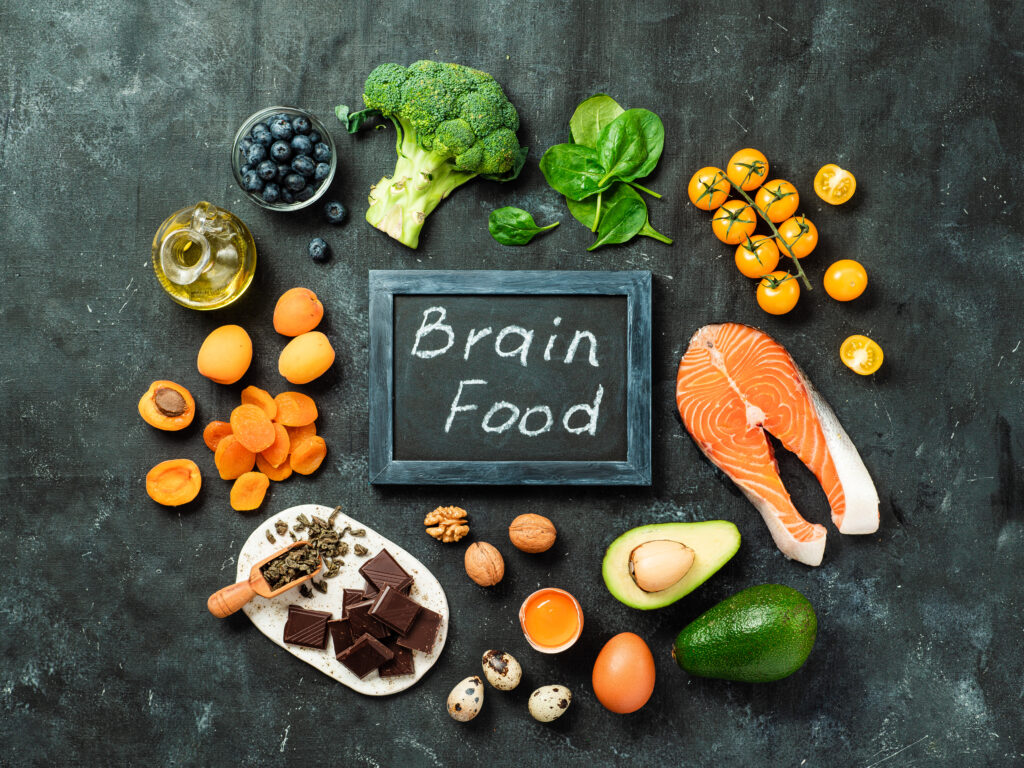The Impact of Your Diet on Your Mental Well-being
Beyond physical well-being, the food we consume significantly impacts cognitive functions and emotional well-being. At North Jersey Health and Wellness we know that the key to real, total mental, physical, and spiritual wellness, is not just working on one piece of the puzzle but understanding how each piece fits together to make you whole. This blog explores the intricate correlation between nutrition and mental health. How these two pieces fit together.
-
The Gut-Brain Connection
The gut is home to trillions of microorganisms collectively known as the gut microbiome. These microbes play a vital role in digesting food, synthesizing vitamins, and maintaining a balanced immune system. Recent research suggests that the composition of the gut microbiome can influence brain function and behavior. A diverse and healthy microbiome has been associated with positive mental health outcomes. As such the GUT, now known to scientists as the “second brain,” plays a major role in mental health. So, a balanced GUT can help improve mood and cognitive function.
-
Nutrients for Neurotransmitter Production
Among other things, the gut produces and releases neurotransmitters, the chemical messengers that facilitate communication between nerve cells. Notably, about 95% of the body’s serotonin, a neurotransmitter associated with mood regulation, is produced in the gut. Imbalances in serotonin levels have been linked to conditions such as depression and anxiety. Essential nutrients play a role in neurotransmitter production. Omega-3 fatty acids support brain function, while tryptophan, found in various foods, influences serotonin, a mood regulator.
-
Blood Sugar Balance and Mood Stability
Ever heard of being “HANGRY”? Have you seen the Snickers commercial where everyone is a raging Diva until they finally get a Snickers, (AKA sugar) into their system? Well, it’s true! Blood sugar levels impact mood. Refined sugars lead to instability, while complex carbohydrates maintain a consistent mood. A balanced diet is crucial for stability.
-
Micronutrients and Mental Resilience
Micronutrients like B vitamins, zinc, and magnesium are linked to anxiety and depression. Ensuring adequate intake through diet or supplementation promotes mental resilience. While taking vitamins is great most of the vitamins your body needs are in nutrient- rich foods. Choosing foods that keep the nutrients your body needs will make you feel better inside and out.
-
Inflammation and Mental Health:
inflammation has been implicated in the development and exacerbation of various mental health conditions, including depression and anxiety. Inflammatory signals can affect the brain and influence neurotransmitter function, neuroplasticity, and neuroendocrine pathways. Chronic inflammation, often from processed foods, contributes to mental health issues. Antioxidant-rich foods combat inflammation, protecting the brain from oxidative stress
Our food choices impact our mental well-being. Everything is connected in our bodies, No one part is separated from the other. Just like our knee bone is connected to our shin bone, so is our gut connected to our brain. Nourishing the mind involves understanding the gut-brain connection, neurotransmitter production, blood sugar balance, micronutrient adequacy, and inflammation. Embracing this correlation empowers us to make choices for a healthy body and a thriving mind.
For more information about how we can help you in your journey to feeling your best please check out our website at www.njhwllc.com. We have 5 NJ locations as well as provide tele-health appointments to all of our patients nationally.
